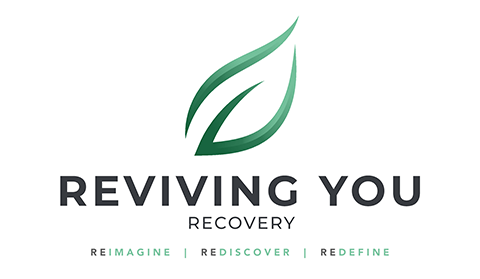How Journaling Helps Clients Track Their Progress

Improving self-awareness of emotions, thoughts, and patterns is a vital part of healing from addiction. It is the foundation for making many changes and gives clients a way to track their progress. There are many ways to improve self-awareness. However, at Reviving You Recovery, journaling helps both clients and counselors see their growth and changes every step of the way. Clients and counselors can look back to get a firm understanding of where they have progressed from while continuing to use prompts to make internal changes throughout treatment.
Journaling at Reviving You Recovery
When clients begin treatment for addiction at Reviving You Recovery, they work with counselors and stay in a safe and supportive environment. They also are asked to do a significant amount of self-reflection through journaling. This begins on day one.
Journaling is used as a way to help them improve self-awareness and connect the dots. With a series of homework, clients work through challenges they are facing internally. These are set at their own pace and are able to see their progress as they go.
Connecting the Dots
Improving self-awareness and working through feelings, mental states, and thought patterns is difficult. In order to truly heal from addiction, however, it is important. There are many points in a client’s treatment process where they need to be aware of certain parts of themselves and then connect the dots.
Journaling helps clients to do so. It is a space that is their own and a way to put what they are feeling, thinking, and experiencing into words. As a result, they are more able to connect the pieces of their past and present. This gives clients the ability to make sense of their situation and see a way forward into a new and improved life without substance abuse.
Using Prompts Along the Healing Journey
While open journaling can be helpful, at Reviving You Recovery, clients are given prompts and homework assignments in the treatment process. These prompts are created as a guide. They help clients learn the process of improving awareness and connecting the dots through experiencing the questions as they go. Homework assignments at Reviving You Recovery are not static. Each client starts with a certain prompt. As they move forward, their counselor chooses prompts that help them to progress. Therefore, while these prompts at first appear simple, they are integrated into the healing process for each client who walks through the door.
Get Your Questions Answered Now
How Journaling Helps in Treatment
Journaling is one of many mindfulness techniques that are often used for the treatment of addiction and mental health disorders. While more research is needed, journaling is a low-impact and effective tool. It helps clients stay engaged in treatment and clearly see the changes they are making mirrored in their entries.
Going through treatment for addiction is challenging. It is normal for clients’ moods and enthusiasm to ebb and flow. However, staying engaged is vital for a client to succeed. Journaling helps clients to be a part of the process in many ways. First, it helps them to see how important their role is. In addition, it is a process that requires that they take the time and energy to complete their assignments.
Therefore, knowing that they are expected to complete the assignment, they are more likely to participate in journaling regardless of their current mood. Changes during addiction treatment are often slow. These changes add up over time. However, for many clients, it can be disheartening. It is common to feel like they are just spinning their wheels and not getting anywhere.

Journaling can help with this. By looking back at past entries, clients will be able to clearly see the changes they have made. They can see the differences in awareness, feelings, mindset, and thought patterns. It is a physical representation of the growth they are making mentally and emotionally.
Journaling Helps Individuals Long-Term
In addiction treatment at Reviving You Recovery, journaling is an important piece. This is due to its impact on both improving the treatment process and helping individuals build long-term changes in their lives. Journaling facilitates long-term change by improving awareness and helping clients to make deep and meaningful changes in their internal world.
When clients improve their awareness, they begin to take note of many aspects of their internal world that have played a role in their struggles with addiction. These will be different for each client. However, a journal acts as a mirror. It shows clients what they have been experiencing and allows them to see it outside of themselves. As a result of these realizations, clients can then take the time to make changes. However, these are not simply one-size-fits-all adjustments. Journaling helps clients have the information necessary to make individualized changes that are meaningful to them and make a true difference in their lives.
Reviving You Recovery uses journaling as a tool to help clients heal, and from day one of admissions, we give new clients homework assignments that allow them to work through their feelings and mental state, and these continue daily. These prompts help both counselors and the client themselves track progress and see their growth. We believe that this process helps our clients to be engaged in addiction treatment and make changes that are long-lasting in their lives. If you are interested in learning more about our treatment programs for addiction or know someone who may be a good fit, contact us today.
We Accept Most Insurances
We are in network with:






We know insurance coverage can be a source of uncertainty for people. We make sure you have all the information necessary. The great news is health insurance can potentially cover the total treatment costs. If you don't have insurance, we offer cash payment options for our treatment programs and are committed to working with clients regardless of financial situations.
